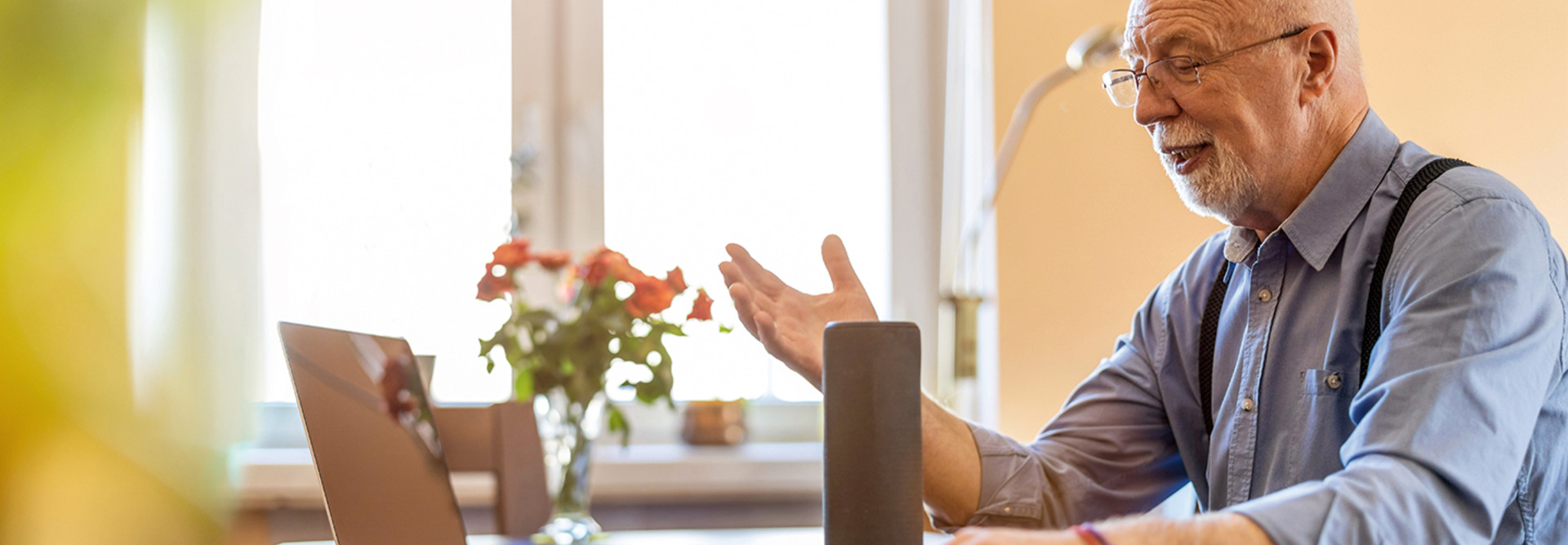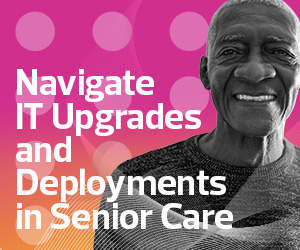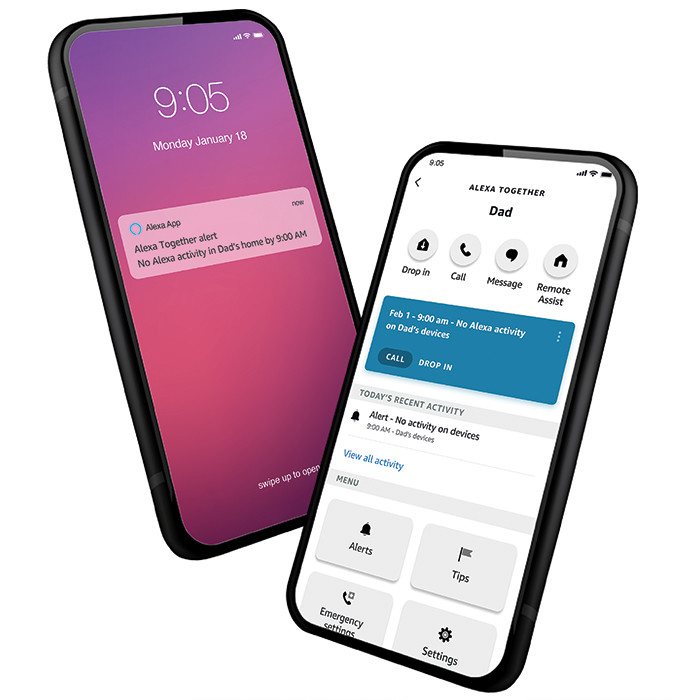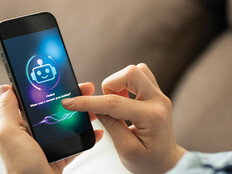As more adults over the age of 60 seek care that allows for more independence, tech companies are answering the call as they increasingly offer health and wellness products and services that cater to older adults’ specific needs. Voice-assisted devices, less intrusive sensors and wearables are just some of the tools being adopted by older adult users. Here’s a look at the latest approaches that provide ease of use and less invasive options for consumers.
A Watch with Robust Health Monitoring
The Samsung Galaxy Watch4 offers more rigorous heart monitoring that could be of value to older adults.
“We understand the path to wellness is different for everyone, and we built a robust suite of health and wellness features to give all users a deeper and more helpful understanding of their overall fitness,” says Dr. Hon Pak, chief medical officer for Samsung Electronics America.
Biotricity’s Biocare Cardiac app for the watch allows users to monitor blood pressure, detect atrial fibrillation, measure blood oxygen level and calculate body composition. It also includes an electrocardiogram to measure the heart’s electrical activity.
The Galaxy Watch4 also has enhanced fall detection that can send out an SOS notification to up to four preselected contacts.
Click the banner below to explore the latest on senior care technology and trends.
Virtual Assistants Expand Focus on Senior Care
Amazon’s Alexa virtual assistant technology has been widely adopted by older adults, in part because it allows them to remain independent, says Nicolas Maynard, senior manager of Amazon’s Alexa for Everyone.
In December 2021, Alexa Together was introduced by Amazon as a subscription service that includes fall detection capabilities and urgent response, which provides hands-free, 24/7 access to a professional emergency helpline and notifies caregivers.
Photo courtesy of Amazon.com
“Voice technology is a great simplifier for seniors, even for those who can be at first resistant to new technology. There are some pieces they have to set up, but once they get beyond that, it’s easy to tell Alexa to play music or set a reminder,” Maynard says.
The service also works with third-party devices that can detect when a customer has fallen or needs help, and prompts Alexa. Its partnership with Vayyar, for example, offers camera-free, wall-mounted sensors for fall detection response. And older adults won’t feel like they’re being constantly watched.
DISCOVER: 3 senior care tech trends to watch in 2022.
Centering Alzheimer’s Care with Camera Technology
Another company, SafelyYou, offers an artificial intelligence-powered camera system to provide fall detection for people with dementia, such as Alzheimer’s disease. Video is only captured and shared with families and caregivers when a fall occurs, and due to the nature of patients with dementia, serves as an extra set of eyes to assist with evaluation of falls.
“What happens right now is folks with Alzheimer's go to the ground and don't necessarily know that they're on the ground,” says George Netscher, founder and CEO of SafelyYou. “They can be on the ground for a long time, but even more pressing, they can't advocate for themselves.”
The service is mostly used in assisted living or skilled nursing communities, Netscher says. The company aims to expand to a residential service by the end of this year.
LEARN MORE: How smart technologies create a more connected environment for older adults.












